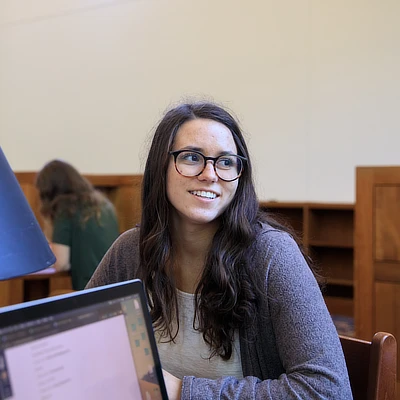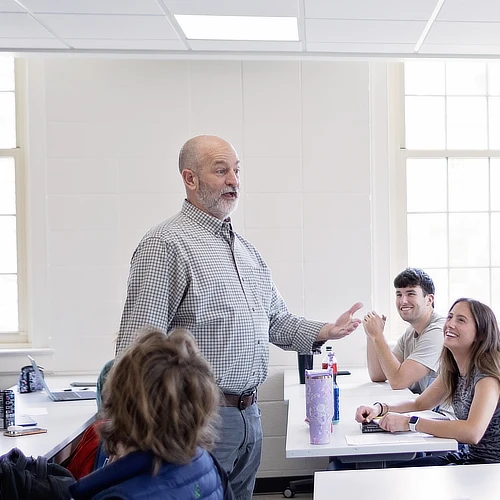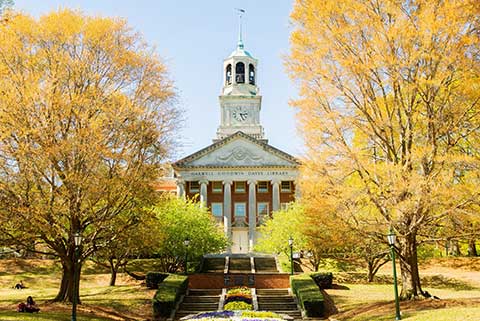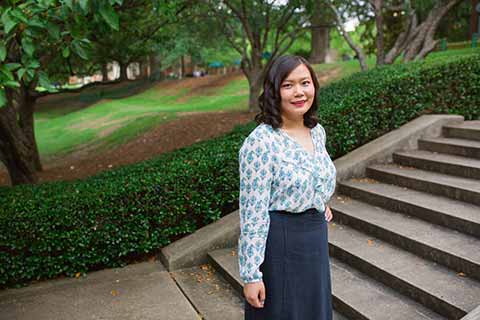Pursue a Major in Biblical Studies | Samford University

Is This Program for Me?
- Gain a deeper understanding of Scripture
- Prepare for ministry, missions, or theological research
- Explore the foundations of Christian faith and history
- Develop thoughtful, faithful responses to modern challenges
- Grow in your spiritual formation and calling to serve

What Will I Learn?
Courses Include
- Old and New Testament interpretation
- Biblical Hebrew and Koine Greek
- The Bible and archaeology
- Theology and the early church
- Biblical ethics and contemporary culture
- Capstone seminars in biblical theology
“My goal is not only to teach students what the Bible says, but to help them learn how to read it carefully, faithfully, and with wisdom—so that it shapes the way they live and lead.”—Jeff Leonard, Professor of Biblical and Religious Studies

What Makes Us Different?

Personal Attention & Mentorship
Small classes, one-on-one advising, and faculty-hosted discussion groups nurture deep learning and long-lasting relationships.
Scholarship Meets Ministry
All faculty hold doctorates, and many are also experienced pastors or ministry leaders, bridging academic rigor with pastoral care.
Study Abroad in Israel
Travel to biblical lands and engage directly with the historical and cultural settings of the Old and New Testaments.
Accelerated Graduate Pathways
Students may apply for the BA-to-M.Div. program (six years total) or complete a business minor to qualify for Samford’s fifth-year MBA.
Interdisciplinary Flexibility
The major pairs well with philosophy, Christian and religious studies, world languages, business, social work, and more, offering vocational versatility.
Career Preparation
Career Opportunities
- Pastor or church leader
- Missionary or global service coordinator
- Theological educator or biblical scholar
- Bible translator or publishing editor
- Nonprofit or ministry director
- Graduate scholar
- Spiritual formation leader or youth minister
Hands-On Experiences
- Samford Sunday preaching opportunities
- Internships and directed research in churches, nonprofits, and academic settings
- Capstone projects and independent studies with faculty mentorship
Application Information
Freshman applications for next fall are open.Freshman Early Action applications close November 1st.The freshman first scholarship deadline is December 1st.Transfer applications for the spring semester close Dec. 15.Freshman FAFSA priority and scholarship deadlines are Feb. 15.Decision day is coming! Freshman applications for fall enrollment close May 1st.Transfer applications for fall enrollment close July 1st.Freshman applications for fall enrollment are closed. Applications for next year open August 1st.Transfer applications for fall enrollment are closed. Applications for next year open September 1st.
Cookie Preferences | Privacy Policy | Software Plugins
Microsoft Excel®
Microsoft Power Point®
Microsoft Word®
Adobe Portable Document Format







